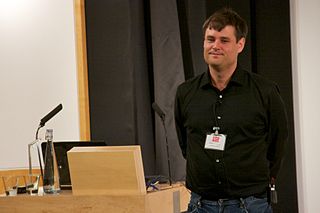A Quote by Sebastian Thrun
Related Quotes
One of the myths about the Internet of Things is that companies have all the data they need, but their real challenge is making sense of it. In reality, the cost of collecting some kinds of data remains too high, the quality of the data isn't always good enough, and it remains difficult to integrate multiple data sources.
Any time scientists disagree, it's because we have insufficient data. Then we can agree on what kind of data to get; we get the data; and the data solves the problem. Either I'm right, or you're right, or we're both wrong. And we move on. That kind of conflict resolution does not exist in politics or religion.
In my view, our approach to global warming exemplifies everything that is wrong with our approach to the environment. We are basing our decisions on speculation, not evidence. Proponents are pressing their views with more PR than scientific data. Indeed, we have allowed the whole issue to be politicized-red vs blue, Republican vs Democrat. This is in my view absurd. Data aren't political. Data are data. Politics leads you in the direction of a belief. Data, if you follow them, lead you to truth.
Scientific data are not taken for museum purposes; they are taken as a basis for doing something. If nothing is to be done with the data, then there is no use in collecting any. The ultimate purpose of taking data is to provide a basis for action or a recommendation for action. The step intermediate between the collection of data and the action is prediction.


































